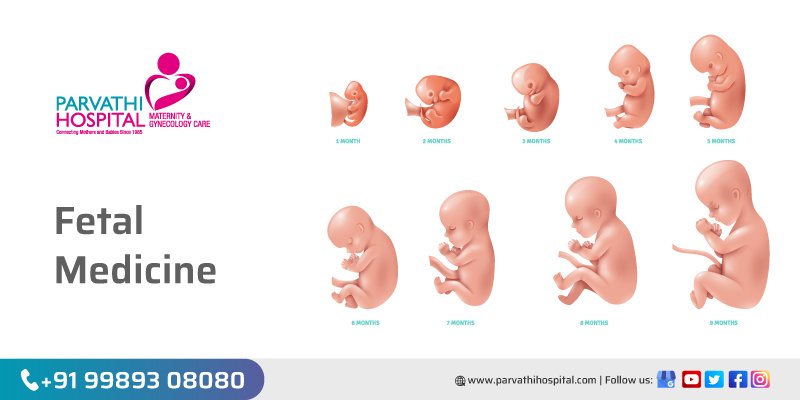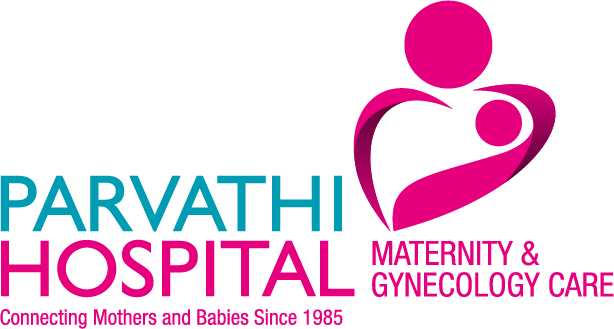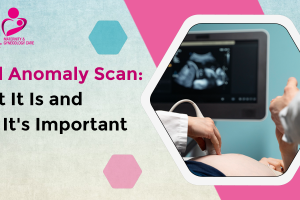Fetal Medicine: What Is It, and Why Does It Matter?

The baby and the mother’s health come first regardless of whether you are pregnant or planning to get pregnant. Parents-to-be have a lot to consider, including how to make sure they act in their best interests, in addition to feelings of joy and excitement and questions. A visit to the Best Gynecologist Hospital in Hyderabad will clear many confusion and queries about fetal medicine.
Indeed, recent developments in maternal and fetal medicine have helped many pregnancies continue to maturity and improved the health of preterm infants and twin/triplet pregnancies. However, IVI Fetal emphasizes that standard gynecology screening during pregnancy differs from fetal medicine.
Many disorders that can be identified before delivery are treated by fetal medicine. However, there is often a major ontogenetic component to how and when treatment can be applied, and different conditions will require different treatment approaches.
Read more: Fetal Medicine During Pregnancy: Why Is It Important?
The Importance of Fetal Medicine
The branch of medicine known as fetal medicine is responsible for treating both the mother and the fetus. This includes monitoring fetal health and growth, diagnosing and treating fetal illnesses (such as fetal anomalies), and providing counseling and parental support.
Patients commonly require clarification on fetal medicine. It is a cutting-edge field of medicine that deals with the particular and unique health challenges that expectant mothers and their unborn children have, such as high blood pressure, bleeding, and multiple miscarriages. Therefore, high-risk pregnant women will much benefit if they seek the advice and assistance of fetal specialists. Doctors can satisfy newborns’ particular and distinctive demands while they are still in the womb with the help of timely and accurate fetal screening and diagnosis.
The Role of the Maternal-Fetal Medicine Specialist
You may have wondered “what exactly do those specialists do” if you have heard the term maternal fetal medicine specialist. Shortly put, experts in maternal-fetal medicine treat complex pregnancies, which might mean various conditions.
A maternal-fetal medicine specialist, often known as a perinatologist, may help safeguard the health of the mother and fetus whether you’re planning to give birth at home, at a birthing center, or in a hospital. Perinatologists are crucial before and throughout pregnancy, if you are at risk for difficulties, but they are also crucial in low-risk pregnancies. To help you make decisions that seem right for you, they offer diagnostic services, advice, direction, procedures, referrals, and information.
To receive a correct diagnosis from the leading authorities in fetal care, you must identify the ideal location for this type of treatment. Perinatology sometimes referred to as maternal-fetal medicine or MFM, is a specialty. These professionals’ primary responsibility is to monitor and manage both the mother’s and the fetus’s health conditions. Before, during, and just after the birth, they also give their knowledge.
Patients can anticipate a thorough ultrasound examination closely examining the fetus’ anatomy as part of a perinatology visit. Then, if necessary, further tests, including amniocentesis, can be carried out. A sample of the amniotic fluid, the liquid around the fetus, is taken during the process. The sample provides genetic data that can be used to identify diseases, including spina bifida, an open neural tube condition in which the spine and spinal cord do not develop normally.
Sometimes a proper diagnosis is not enough to ensure the fetus’ health during or immediately after pregnancy. You also require the quickest solutions. The fetus should undergo the appropriate treatment as soon as the problem is identified. This is another justification for searching for the best fetal medicine facility. Check out the hospitals with the best fetal medicine departments to get the quickest medical attention for your unborn child.
The parents must receive the necessary counseling on the complete fetal care process. Every year, many parents in a country like India lose their kids before delivery due to their ignorance or lack of understanding about fetal medicine and fetal care. A modern mother and child care facility’s responsibility extends beyond only providing the best care; it also owes it to the parents to appropriately counsel them on the importance of fetal medicine. They should be aware of how fetal abnormalities can complicate pregnancies and what they can do to resolve this problem.
The Final Word
Low survival rates were observed for infants ≤ 500g or younger than 24 weeks. However, the infants’ chances to survive are more significant the longer they are in the womb. The fetal medicine facility, which offers specialized, personalized treatment for the mother and baby, steps into play at this point.
Fetal medicine is a field that entails properly tracking the fetus’s development and health while it is still inside the mother. The maintenance of the fetus’s health state and detecting problems as the due date approaches are also included. As soon as they identify any problems in the fetus, they begin treatment.
Prenatal care is essential to predicting the baby’s health at birth. Therefore, you should choose the most seasoned, effective, and best gynecologist hospital in Hyderabad that handles gynecology and obstetrics surgery in Dwarka and provides fetal medicine treatment because treating the unborn patient is not an easy undertaking.











